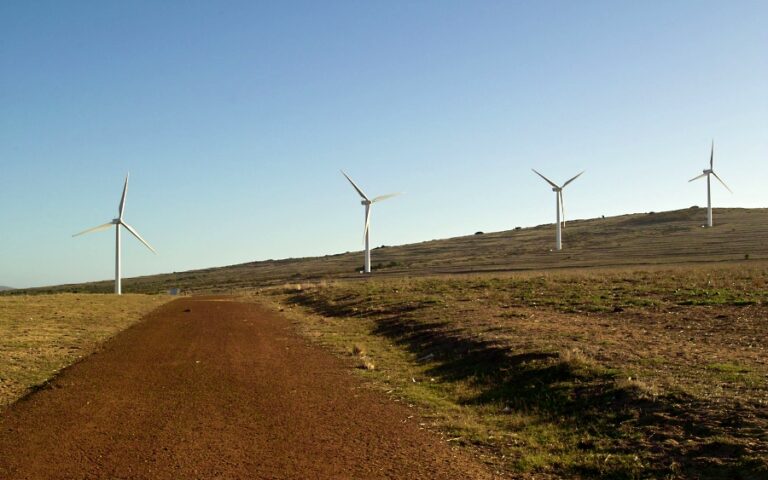Standard Bank today released its Fossil Fuels Financing Policy. The policy does not include any ambitious fossil fuel financing exclusions. Standard Bank makes a number of contradictory statements and inaccurate comments about the need for fossil fuel development in Africa.
Standard Bank states that it “supports the goals of the Paris Agreement”. The Paris Agreement requires urgent action “to reach global peaking of greenhouse gas (GHG) emissions as soon as possible” and to “make finance flows consistent with a pathway towards low GHG emissions and climate-resilient development”. Standard Bank’s policy makes it clear that, in opposition to these goals, it intends to continue funding major new fossil fuel projects in Africa.
A number of media reports published today claim that Standard Bank will not fund new coal-fired power plants. Just Share believes that this is an inaccurate interpretation of the Policy, which states that it “excludes direct finance to new coal-fired power generation plants” because the bank’s Coal-Fired Power Finance Policy applies to these projects. The Coal-Fired Power Finance Policy does not exclude finance to new coal-fired power, but rather sets emission and plant size parameters linked to the level of development of the country in question.
Standard Bank states in the Policy that Africa’s “production and consumption of natural gas is expected to increase into the future” and “become the leading global hydrocarbon”. It provides no evidence for this claim. In fact, a report released yesterday by consultancy Wood McKenzie finds that “only a quarter of forecast new liquefied natural gas (LNG) supply will be needed to meet demand by 2040 under measures aimed at curbing global warming below 2 degrees Celsius”, and that “77 per cent of new supply from LNG projects is at risk”. The report finds that while “low-price US natural gas is likely to help new American export projects remain competitive …more marginal expansion plans in places such as Canada and Mozambique would face the axe”.
Standard Bank claims that it has taken a “proactive” approach regarding its position and parameters for involvement in fossil fuels. This fails to recognise that the bank was in fact, obliged to develop these policies: in 2019, 55% of its shareholders voted in favour of a shareholder-proposed resolution requiring the bank to publish a policy on the financing of coal fired power and coal mining.
Earlier this year, Standard Bank, which is, by its own account, Africa’s biggest oil and gas lender, refused to table a shareholder-proposed resolution which asked that it extend its coal policies to include its position on oil and gas financing. In response to significant pressure on the bank as a result of this change in stance, Standard Bank indicated, at its 2020 AGM, that it would publish a fossil fuel financing policy by the end of this year.
Fossil fuels not required for energy security and poverty alleviation
Standard Bank, like most other financial institutions in South Africa, incorrectly equates the growth of fossil fuels with increased energy security and poverty reduction in Africa. It argues that the “challenges posed by climate change” need to be “balanced” with “the need to support access to reliable energy that supports economic growth and poverty alleviation”. This is not supported by the facts.
In reality, Africa’s existing fossil fuel-based energy systems are climate-destructive and polluting. They do not provide affordable, reliable energy to all, and have not significantly contributed to the alleviation of poverty, unemployment and inequality. In circumstances where significant quantities of Africa’s existing and planned fossil fuel reserves are in fact exported, the argument that Africa needs more fossil fuels is weak.
It is, of course, clear that the transition away from existing fossil fuels must not only be carefully managed, but must provide credible alternatives for inclusive and sustainable growth. However, there is no basis to argue that continued growth in fossil fuels is necessary to provide energy security or poverty alleviation. A rapid and extensive scaling up of renewable energy generation is the most cost-optimal energy pathway for the continent, and presents significant economic benefits and opportunities.
Standard Bank says that it must “balance the challenges posed by climate change with the need to support access to reliable energy that supports economic growth and poverty alleviation, in line with the UN Sustainable Development Goals 7 (ensure access to affordable, reliable, sustainable and modern energy for all) and 13 (take urgent action to combat climate change and its impacts)”. It is inaccurate to suggest that achievement of any of the Sustainable Development Goals (SDGs) is in opposition to the achievement of any other. The purpose of these ambitions is that they must be tackled simultaneously and holistically. In fact, SDG 7 is positioned as being essential to “lay the foundation for the eradication of poverty, for climate action and for a sustainable world”, and that, without progress on achieving SDG 7, “the world will fall short of achieving the other SDGs”.
Fossil gas and oil
The only financial exclusions Standard Bank incorporates are for: “extraction of tar sands or construction of associated export facilities; exploration and production of tight oil resources; and pipelines transporting a significant volume of tight oil and export terminals supplied by a significant volume of tight oil”.
Standard Bank’s explanation for not funding oil and gas activities in the Arctic and Amazon is that its “geographies of activities limit any potential involvement outside of the Africa continent”. It is not clear whether these activities would be excluded on climate grounds.
Standard Bank sets out the financing parameters for its oil and gas portfolio. Among these, is that the counterparty must “commit to minimising / reducing greenhouse gas emissions”. It is unclear how any new fossil fuel project developers could meet this requirement, given that new fossil fuel projects will by their very nature involve increases in greenhouse gas emissions.
The Policy does recognise that “demand for oil is expected to slow and perhaps fall”. Notwithstanding this, Standard Bank is acting as co-advisor for the $2.5 billion project loan needed for the hugely-contested 1445km heated East African Crude Oil Pipeline (EACOP) that is proposed to run from Western Uganda to the Tanzanian port of Tanga. Both the oil extraction and the pipeline are extremely controversial, posing serious environmental and social risks throughout Uganda and Tanzania, and with potentially huge climate impacts.
A recent report by the Climate Policy Initiative on the Ugandan oil industry indicates “structural changes in the global oil industry over the last five years have reduced the value of Uganda’s upstream oil reserves by 70% ($47 billion) to $18 billion, compared with the value if first oil had flowed in 2018, as originally planned when production licences were awarded in 2013”. There is further value at risk of some $10 billion for Uganda in a well-below two degrees Celsius-aligned transition, mostly caused by lower oil prices. The report concludes that “for Uganda, an economic strategy that relies on oil as a major driver of economic development is an increasingly risky one and may not be as conducive to sustainable development as a diversified strategy with more emphasis on other economic drivers, such as electrification. Uganda should consider carefully whether the potential value from its oil industry still outweighs the risks”.
If banks and other financial institutions continue to provide funding for coal, oil and gas, it will become increasingly unlikely that the Paris Agreement’s goals can be met: to limit global average temperature rise to well below 2 degrees Celsius above pre-industrial levels (and ideally to limit the temperature increase to 1.5 degrees); and to increase the ability to adapt to climate impacts.
South African banks, like all financial institutions, must rapidly limit their exposure to fossil fuels and scale up and direct financing towards assets and investments necessary for transitioning to low-carbon, resilient and sustainable economies. Investec and FirstRand have also published fossil fuel funding policies, and Nedbank’s is expected in April next year. Just Share will release a detailed briefing on these policies and other climate-related disclosures in January 2021.






